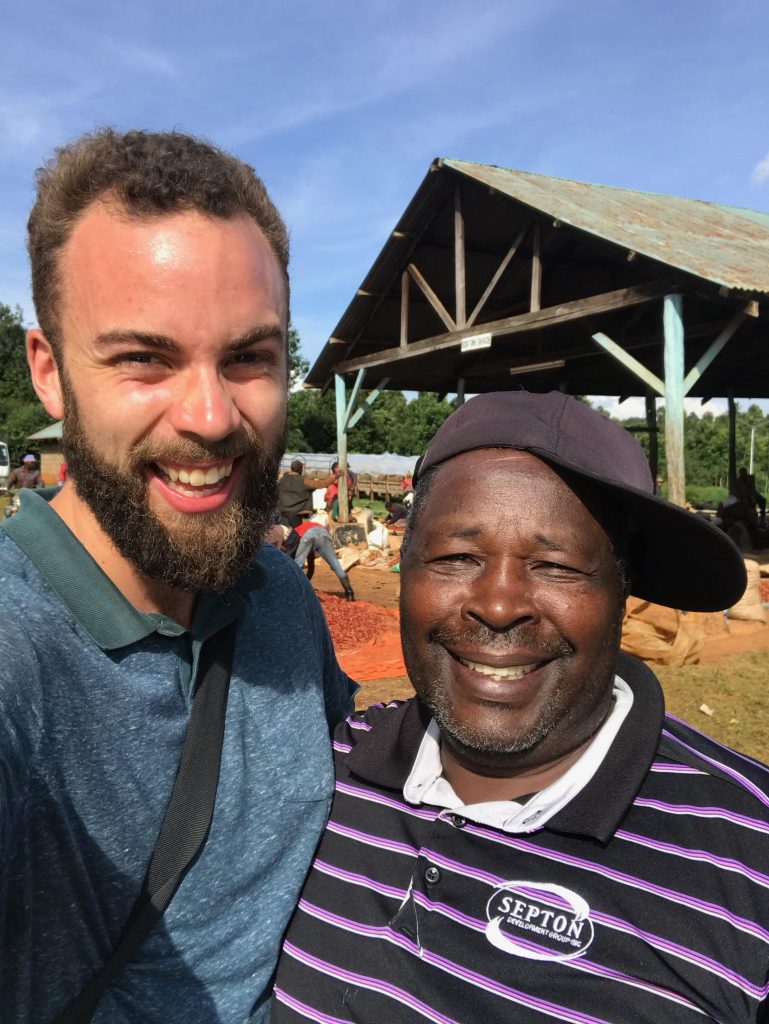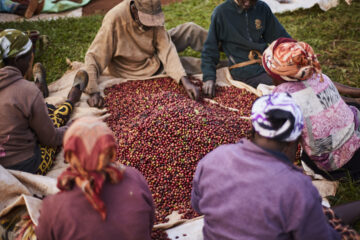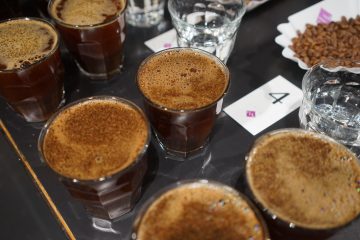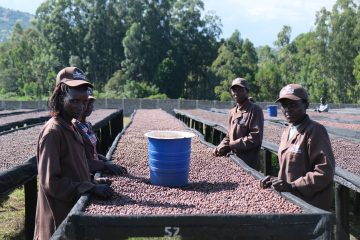Frederik, the manager of the Rungeto cooperative, has a unique approach. This may be due to his years of practical coffee experience managing Karimikui and Kiangoi washing stations.
Firstly he views coffee as part of the broader agricultural potential of the region. He encourages coffee farmers to also raise cows, and alongside the coffee washing stations, he manages dairy processing and storing facilities. The coop either transforms the farmers’ milk into dairy products like butter and cheese or resells it for further processing at the Kenya Cooperative Creamery (KCC). The milk is bought for 35 Kenya Shilling (Ksh) and re-sold for 39 Ksh. The profits from these activities are reinvested in both dairy and coffee infrastructure, enabling the coop members to improve yield and quality year-on-year.

Secondly, Frederik sees financing as a major obstacle to sustainable farming, so he set up a micro-financing company, replacing the widespread governmental run plan called Sacco. Producers who receive advances for coffee or cows can directly repay the loans when they deliver coffee and milk to the cooperative buying stations, instead of making direct cash payments to Sacco. It’s a small difference in the way micro-financing works, but one that has a big impact for a cash-strapped producer.
Frederik also runs some of the cleanest washing stations I have seen — the fermentation and soaking tanks and grading channels are all tiled, the drying beds are metallic and meticulously cleaned and the factories are freshly painted every year. He processes top lots with laser focus, creating perfect layers and planning regular rotations, as this is where he can earn the real premiums for the coops members.

Frederik is always present at the auction to follow the market price, but he prefers to sell coffee directly, rather than waiting to see what he might get via the auction at different times in the season. By developing long term relationships with buyers, he can demonstrate the value the coop adds to its coffees through superior infrastructure, and he can share any information he learns from buyers with the coop’s producers.
Every year we cup so many great coffees from cooperatives, many of them new to us. They may have great profiles, but we keep our buying focused on cooperatives like Rungeto, where we know we’ll find great coffees, and the premiums are being reinvested so the coop’s members are getting the best value from the purchase.
Coffees from Rungeto factories Kii and Karimikui will hit the water soon, and we expect them to land within 6-7 weeks. See our full list of Kenyans here.



0 Comments